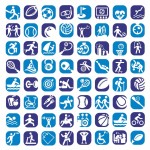Search Result
Mental health matters
Loneliness
 Loneliness is the feeling of sadness that comes from not having as much company as you would like or the or the type of company you would like. It’s also been described as the feeling we get when our need for positive social contact and relationships is not there or lacking in some way.
Loneliness is the feeling of sadness that comes from not having as much company as you would like or the or the type of company you would like. It’s also been described as the feeling we get when our need for positive social contact and relationships is not there or lacking in some way.
We all feel lonely from time to time
Feelings of loneliness are personal to us, so everyone’s experience is different. Loneliness has many different causes and can happen whether we live alone or surrounded by others. Loneliness is a normal response to feeling disconnected - or feeling apart - from others emotionally, physically or both.
The truth is we all feel lonely from time to time. This doesn’t mean that it is an easy emotion to live with and loneliness can sometimes be a trigger for other mental health issues like depression.
Being alone and loneliness
Loneliness is not always the same as being alone. You may choose to be alone and live happily without much contact with other people, while others may find this a lonely experience. Or you may have lots of social contact or be in a relationship or part of a family, and still feel lonely especially if you don’t feel understood or cared for by the people around you.
Life and life events may mean we can feel lonely. These include:
- Coming out or questioning your sexuality
- Leaving home or moving to a new area or country
- Starting at college or university
- A relationship break-up
- A job change
- Retirement
- Bereavement or someone dying
- Something you can't quite put your finger on
We should also be mindful that people who live in certain circumstances are more vulnerable to loneliness. For example, if you:
- Have no friends or family and/ or are estranged from family
- Belong to minority groups and live in an area without others from a similar background
- Are excluded from social activities due to mobility problems or a shortage of money
- Experience discrimination and stigma because of a disability or long-term health problem, including mental health problems
- Experience discrimination and stigma because of your gender, race or sexual orientation
- Have experienced sexual or physical abuse – you may find it harder to form close relationships with other people
Adapted from What causes loneliness? | Mind
There is no magic answer but...
Loneliness affects everyone differently and it can often feel overwhelming and something out of our control. There's no magic answer or solution but learning how to deal with it as something that can happen from time to time in our lives can help us know you can do to help yourself and where to go for support. This starts with acknowledging loneliness in yourself, working out what you need, and taking action and doing something about it.
Changing your perceptions
Key is changing your perceptions of the world around you. For example, it’s realising that sometimes people aren’t able to meet up with you, not because there is something inherently wrong with you, but because of other things going on in their lives. Or the person that you wanted to have dinner with wasn’t able to accept your invitation because it was too short notice for them and they had already promised someone else they would have drinks.
People who aren’t lonely realise this and don’t get down or start beating themselves up when someone says no. When you don’t attribute “failures” to yourself, but rather to circumstances, you become much more resilient in life and can keep going. Getting rid of loneliness - or better managing it - is also about letting go of cynicism and mistrust of others.
So next time you meet someone new, try to lose that protective shield and really allow them in, even though you don’t know what the outcome will be.
Apps have done more harm than good to the community’
Social media’s a double-edged sword for gay men. It can be great for making connections and hooking up, but it also encourages a tendency for external validation. You’re making snap judgements about what people look like. Then there’s sex: the ultimate validation. It can be easy to get stuck in this loop of validation that comes from sex with strangers. Except the sex and the connection can turn out to be meaningless. It can be really easy to become addicted to the apps.
If they’re concerned about app use, I encourage clients to monitor who’s in control. Are the apps controlling me, or am I in control? And ask; am I being kind to myself and others? If you’re in control and being kind to yourself and others then it’s OK. But in all honesty, I’d argue the apps have done more harm than good to the community.
The gay scene I grew with in the 90s before apps existed has changed beyond all recognition. There was a big range of venues in London and people were more sociable. We went out primarily to socialise and hopefully hook up if we got lucky!
Of course, before the apps, loneliness existed. From personal experience, I can remember being in large clubs surrounded by friends and feeling lonely. It’s not just about sitting at home by yourself. You can feel alone in a crowd.
Why do so many gay men feel lonely? | No hyperlink available | Digital Pride | May 2019
 Don't just read this list, do something
Don't just read this list, do something
Activities and social groups | MEN R US
A helpline if you want to talk to someone | MEN R US
Mental health support | MEN R US
Over tea and biccies, we pulled together a list of things to do (in no particular order) which we hope will nudge or inspire you to take a first step:
- Reach out
- Get out
- Just say hello once in a while
- Don't forget to thank and compliment others
- Look after yourself better, more
- Learn something new in real life, or on the internet
- Take a long walk, perhaps explore your neighbourhood
- Jump on a bus, any bus
- Spend (more) time with your pet
- Volunteer for a cause or charity
- Join a club, activity, or networking group
- Take up a new hobby
- Get into books
- Garden, even if it's a window box
- Keep in contact online
- Borrow a dog (with permission)
- Email us to let us know how we can make this section better
Organisations
Loneliness | Mind
Mental health issues if you're gay, lesbian or bisexual | NHS
Loneliness | Wikipedia
Loneliness | Psychology Today
Loneliness | Age Concern
What is loneliness | Black Dog Institute | Australia
News articles and further reading
LGBTQ+ people in the countryside need a voice | Openly | 3 Nov 2023
Nine ways to feel less lonely | BBC Radio 4 | No date
Loneliness, loss and regret: what getting old really feels like – new study | The Conversation | 8 Sep 2021
Why it's time to stop pursuing happiness | The Guardian | 10 Jan 2021
Coronavirus lockdown: LGBTQ people face hostility and loneliness | The Conversation | 16 Apr 2020
Loneliness is contagious – and here’s how to beat it | The Conversation | 13 Jul 2018
Loneliness Experiment (Valentine's Day 2018) | BBC | 1 Oct 2018
Think of your LGBT friends who might be lonely this Christmas | Huff Post | 17 Dec 2018
Loneliness: What characteristics and circumstances are associated with feeling lonely? | National Office of Statistics | 10 Apr 2018
Is loneliness the gay man’s curse, or a product of 21st century life? | Gay Times | 29 Aug 2017
The Epidemic of Gay Loneliness | Highline | Michael Hobbs | 2 Mar 2017
YouTube video responses to the article The Epidemic of Gay Loneliness
"The Epidemic of Gay Loneliness" | Donny Winter | 19 Mar 2017 | 11m 53s
"The Epidemic of Gay Loneliness" | Zack Arad | 11 Mar 2017 | 18m 26s
Loneliness | Kurzgesagt (In a Nutshell) | 17 Feb 2021 | 12m 29s
↑ Back to top“Discrimination and hate crime are still common, and have increased since Brexit, and many gay men still internalise a sense of shame due to rejection and alienation,” says Meg-John. “Bisexual people have historically been rejected from both straight and gay communities, meaning there’s very little support available when they're struggling. Constant 'debates' about trans existence, coupled with everyday experiences of misgendering and transphobic bullying – which 8 out of 10 trans kids experience – take a massive toll on mental health, meaning trans people have frighteningly high rates of suicidal thoughts."
Gay, bi, and trans men grow up knowing heterosexual and cisgender is the default, sometimes in very hostile environments. Even before they work out what’s different about them, it’s likely their peers, families and schoolteachers have spotted the signs. The effect of being “seen” in this way, is profound and enduring. Says Anthony, a gay man now in his fifties: “The overwhelming fear anyone should find out gave me the ability to cut myself off from my emotions, or at the very least bury them very deeply.”
LGBT+ people are more depressed than straight people. Here's why. | GQ | 1 Nov 2018
